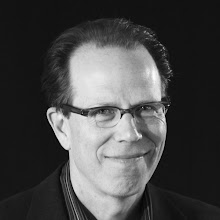The Prius Effect, Take 2
The universe works in interesting and often synchronous ways. After I posted the last entry I picked up Donella M eadows book “Thinking in Systems,” which I’m about halfway through. Amazing book; I highly recommend it. The passage I read last night was about a neighborhood in Holland where all the houses were alike except for one thing – some had their electric meters in the front hall for all to see, while the others had meters in the basement. These were the kind of meters where you can see the little silver wheel spinning faster the more energy you use. Not surprisingly, the houses where people could see their energy consumption used about a third as much energy as the ones with the meters in the basement. This was way before Priuses - the story took place in the early 1970s!
eadows book “Thinking in Systems,” which I’m about halfway through. Amazing book; I highly recommend it. The passage I read last night was about a neighborhood in Holland where all the houses were alike except for one thing – some had their electric meters in the front hall for all to see, while the others had meters in the basement. These were the kind of meters where you can see the little silver wheel spinning faster the more energy you use. Not surprisingly, the houses where people could see their energy consumption used about a third as much energy as the ones with the meters in the basement. This was way before Priuses - the story took place in the early 1970s!
It makes me think we should pass a law that requires putting electric meters inside the house where everyone can see them. With current technology it would be easy to not only have them show energy use, but give you an hourly and daily summary. I can’t imagine we really need to have meter readers going around manually reading each meter, but if we do, a redundant system would still be worth it. As it stands now, I bet most people don’t even know where their meters are!
The universe works in interesting and often synchronous ways. After I posted the last entry I picked up Donella M
 eadows book “Thinking in Systems,” which I’m about halfway through. Amazing book; I highly recommend it. The passage I read last night was about a neighborhood in Holland where all the houses were alike except for one thing – some had their electric meters in the front hall for all to see, while the others had meters in the basement. These were the kind of meters where you can see the little silver wheel spinning faster the more energy you use. Not surprisingly, the houses where people could see their energy consumption used about a third as much energy as the ones with the meters in the basement. This was way before Priuses - the story took place in the early 1970s!
eadows book “Thinking in Systems,” which I’m about halfway through. Amazing book; I highly recommend it. The passage I read last night was about a neighborhood in Holland where all the houses were alike except for one thing – some had their electric meters in the front hall for all to see, while the others had meters in the basement. These were the kind of meters where you can see the little silver wheel spinning faster the more energy you use. Not surprisingly, the houses where people could see their energy consumption used about a third as much energy as the ones with the meters in the basement. This was way before Priuses - the story took place in the early 1970s!It makes me think we should pass a law that requires putting electric meters inside the house where everyone can see them. With current technology it would be easy to not only have them show energy use, but give you an hourly and daily summary. I can’t imagine we really need to have meter readers going around manually reading each meter, but if we do, a redundant system would still be worth it. As it stands now, I bet most people don’t even know where their meters are!


